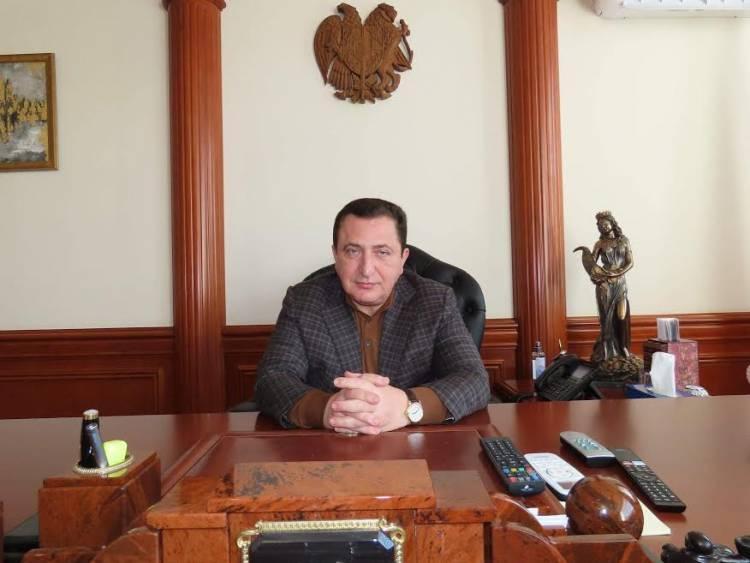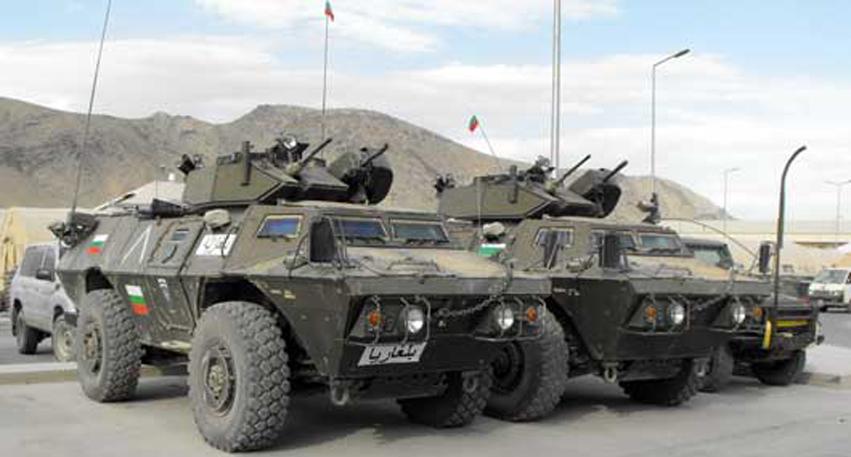Bulgaria - arms business with Armenia and gas trade with Azerbaijan Sofia's double game
The arms trade is one of the most profitable businesses in today's world. Each year the biggest producers and exporters of arms earn tens of billions of dollars. However, apart from the legal market, where each unit of weapon sold is registered, there are no less, and perhaps even more profitable arms trade markets - black and grey, which operate in circumvention of international law and embargoes. It involves not only syndicates, mafia formations, and individuals, but also entire states. And sometimes there is even a merger of arms dealers with the state. Armenia and the notorious David Galstyan illustrate it.
Galstyan is a recognised arms dealer of Armenia, nicknamed "patron Davo". He is closely related to [Armenian Prime Minister Nikol] Pashinyan himself. According to the former Armenian ambassador to the Vatican and [former Armenian President] Serzh Sargsyan's son-in-law, Mikayel Minasyan, David Galstyan was personally authorised by the revolutionary prime minister to handle the arms business. Moreover, Galstyan was also seen next to Pashinyan at the Armenian authorities' inauguration of a joint factory for the production of Kalashnikov automatic rifles, where Royalsys Engineering LTD is a shareholder. And although Armenia's special services have lately turned against Galstyan, still many people in the country think that this was done as a distraction and to frighten the "baron" who started to "squirrel away" - to pocket a large part of the money of illegal weapon trade to third countries, which made Pashinyan angry and gave an order to thoroughly shake his rogue partner in the arms business.
Shortly before the start of the 44-day war, in the summer of 2020, the Russian newspaper The Moscow Post devoted an entire article to Galstyan's dirty business. In particular, it again referred to the above-mentioned Minasyan: "Armenian Prime Minister Nikol Pashinyan authorises David Galstyan through the Defence Ministry and grants him the privilege to order, let us call it conditionally, 100 units of weapons on behalf of the Republic of Armenia. Then the Republic of Armenia buys, let us say, 60 of those 100 types from David Galstyan's offshore. He pays for these 60 weapons and these 60 weapons come to Armenia. Everything is in order with the documents, but there is one exception: the 40 units that were initially ordered but not paid for, David Galstyan, who already had agreements with third countries, sends directly from Russia to a third country. For example, to the United Arab Emirates. From this third country, the weapons end up in a fourth country."
The name of David Galstyan, the owner of the firm Royalsys Engineering, has long appeared in reports on the illegal transportation and sale of weapons in conflict zones. Thus, Galstyan and his numerous companies are mentioned in one of the UN Security Council reports in connection with arms deliveries to Libya and further to Syria to unnamed groups that oppose the Assad government, payments to the offshore company of [former] Ukrainian President Petro Poroshenko and in numerous court documents in Armenia itself. In open sources, the same Galstyan is indicated by the names of such companies involved in the military-industrial complex as Mosstone Engineering, Armenian DG Arms, Ayk Avia, and engaged in arms supplies to Syria, Libya, South Sudan, and Somalia.

That is, with the protection of the new authorities, Galstyan was selling military products to third parties, while using the discounts provided by Russia, according to allied obligations. Considering that Russia used to supply arms to Armenia at domestic prices, depending on the type of arms, this discount ranges from 15 to 40 per cent of world prices. Given the fact that Russia has extended $300 million in arms loans to Armenia over the past few years, the Russian budget has been short from $60 million to $90 million.
According to the official report of the Armenian Chamber of Auditors for 2019, out of 28 aircraft registered in the country, 10 were in South Sudan and Chad for the purpose of air cargo transportation. Clearly, Armenian planes were not carrying peaches and apricots to these African countries, which are territories of permanent conflicts. That same year, another Armenian airline, Mars Avia, was also spotted in the story of an emergency landing at Mogadishu airport. Most likely, it was about a "dummy" shipment of weapons or ammunition, which is often done just under the cover of these kinds of "surprises", The Moscow Post wrote.
Recently it was reported that David Galstyan on behalf of his company Mosstone Engineering creates a joint venture in Kazakhstan with a certain Eldar Rashitovich Tabanov. Kazakhstan and Azerbaijan are brotherly Turkic countries, but Galstyan's cooperation with Kazakhstan raises serious questions in Azerbaijani society. And the references to the fact that Kazakhstan and Armenia are members of the CSTO [Collective Security Treaty Organisation] and may have certain business interests are hardly relevant here. After all, in this case, we are talking about a well-known arms dealer, involved in the illegal supply of weapons to both Armenia and third countries.
Galstyan is accused of supplying munitions to the Armenian army, but his prison cell is still empty. In March this year, the Yerevan court set bail for businessman Davit Galstyan at 50 million drams [$119,034]. The release of the arms dealer was not accidental - the Russian-Ukrainian war was already at its peak and his services and opportunities were quite opportune. In June, The Moscow Times already published an article about the Armenians having intercepted a large shipment of weapons from Ukraine. According to that article, in May Czech and Polish brokers working for Ukraine had already almost agreed to buy armoured vehicles and artillery shells from the Bulgarian supplier when a group of Armenian buyers offered one and a half times more money and won the contract. A member of Ukraine's Verkhovna Rada familiar with the negotiations told The Wall Street Journal. "We are absolutely certain that these weapons will not go to Armenia, but will probably be sent to Russia. They understand what we are looking for and where," the deputy said. It is obvious that Galstyan was not involved here.

However, the Ukrainian MP was mistaken - Caliber.Az received reliable information from competent sources that this weaponry had settled down in Armenia. And this raises serious questions for Baku. Of course, Azerbaijan is well aware that the Bulgarian armament makers are not involved in this case by chance. Back in December 2010, The Guardian published another Wikileaks piece. According to the newspaper, Armenia was buying arms from Bulgaria and then reselling them in Iraq, Iran, Yemen and South Sudan. [Former US] Secretary of State Condoleezza Rice had even ordered the diplomats accredited in Armenia to protest the weapons emanating from Bulgaria and used against the US military in Iraq. US officials rebuked the Armenian defence minister for personally facilitating deliveries of Bulgarian-made automatic pistols and 100 RPG-22 anti-tank missiles to Iran.
In 2018, the media spread information that Armenia and Bulgaria continue to cooperate in the defence sphere, in particular, Yerevan buys weapons, including heavy weapons, from Sofia. This was indicated by the fact that Il-62 cargo planes were regularly operated on the Yerevan-Burgas-Yerevan route. And Burgas, as we know, is a hub for the delivery of arms from Eastern Europe. But now the situation has radically changed - a few days ago it was reported that Greece began to transport Azerbaijani gas to Bulgaria through the Komotini-Stara Zagora pipeline. It is expected that from July 1, 2022, the agreed delivery in the volume of 1 billion cubic meters will start. But how can we explain the fact that Bulgaria is arming Armenia? Sofia, so dependent on Azerbaijani gas deliveries, must be aware of whom this weaponry can be used against. Azerbaijan has a perfectly reasonable question: who is Bulgaria going to cooperate with? With Azerbaijan, which provides it with gas and develops relations in many areas, or with Armenia, which earns money from grey arms deliveries to third countries?








